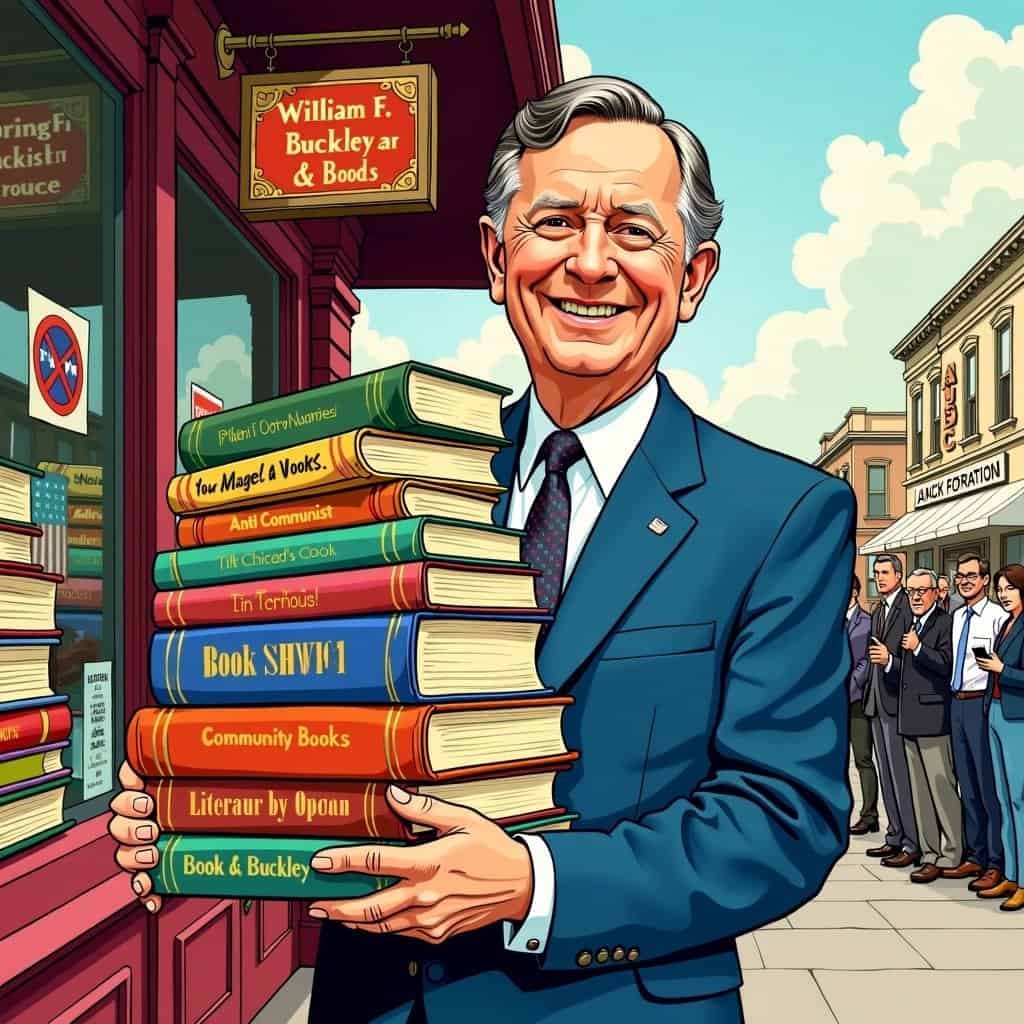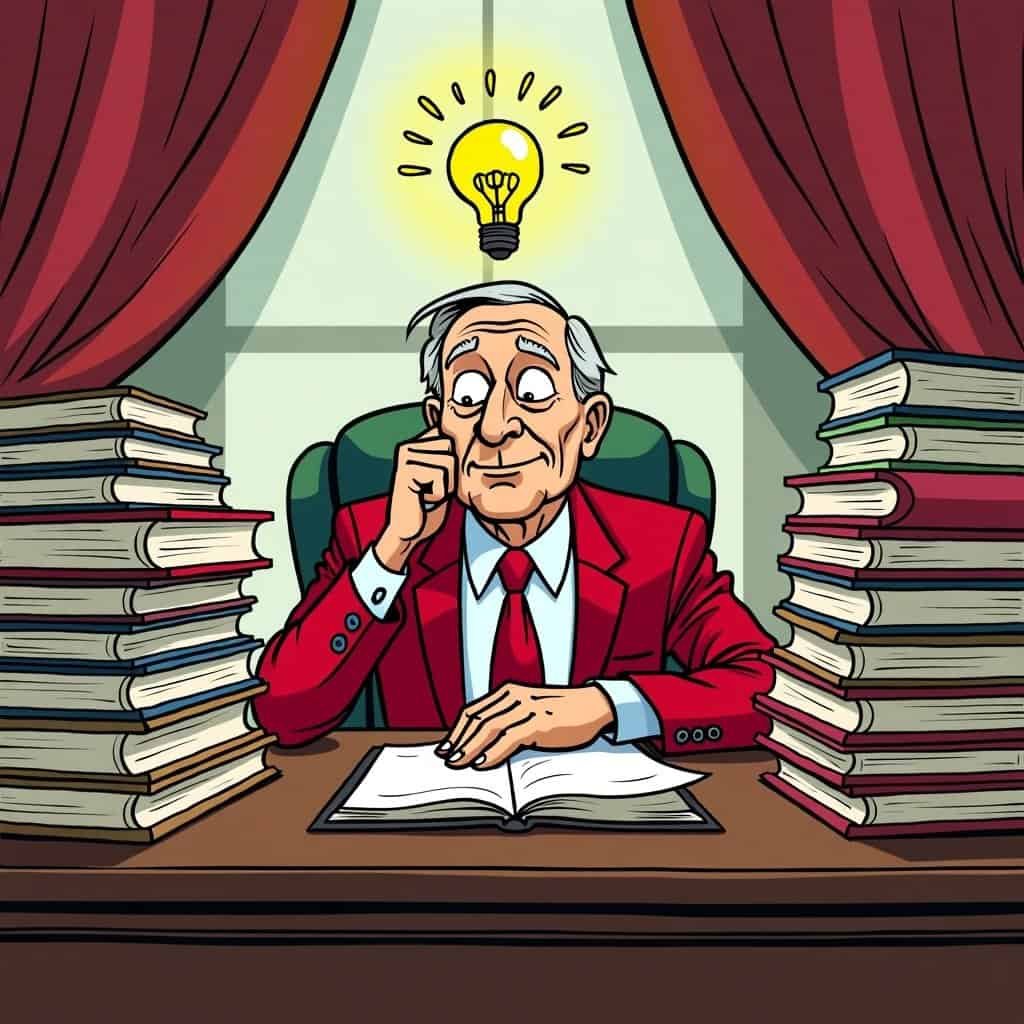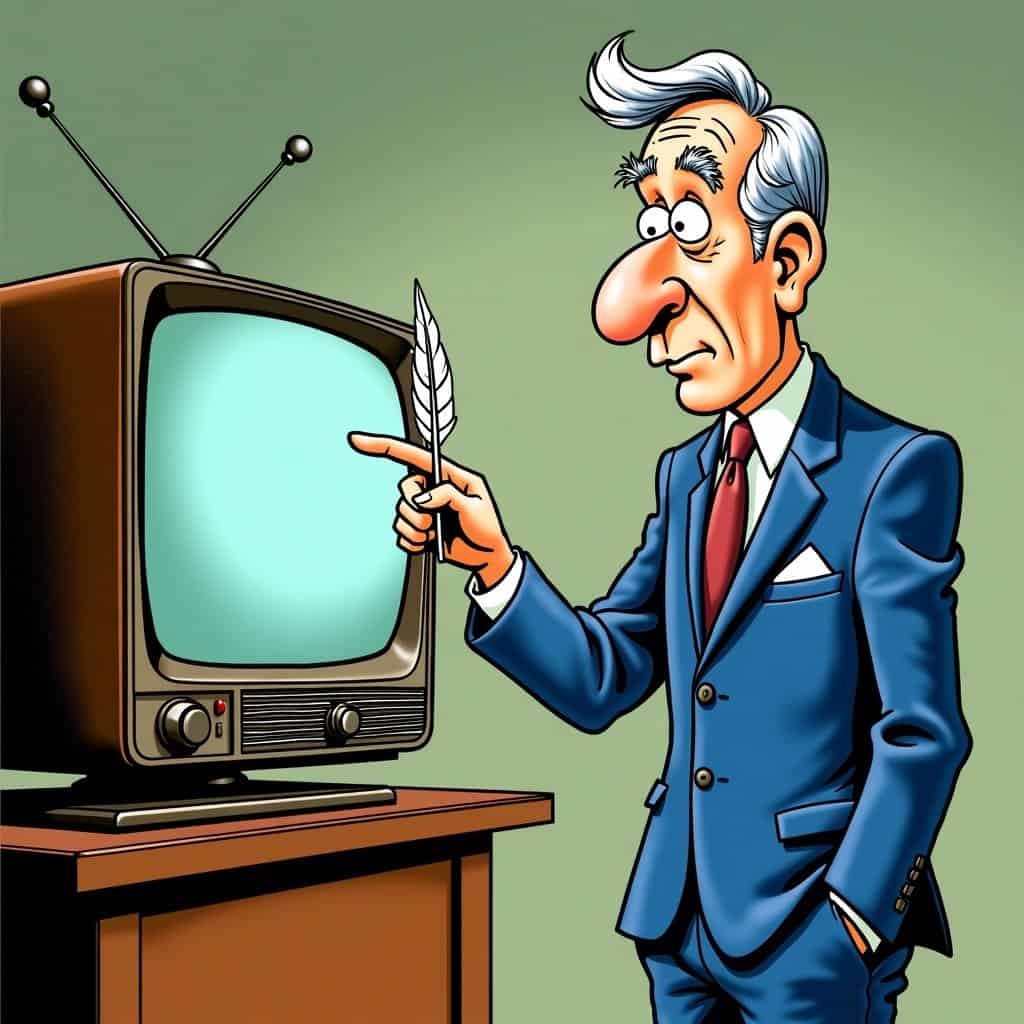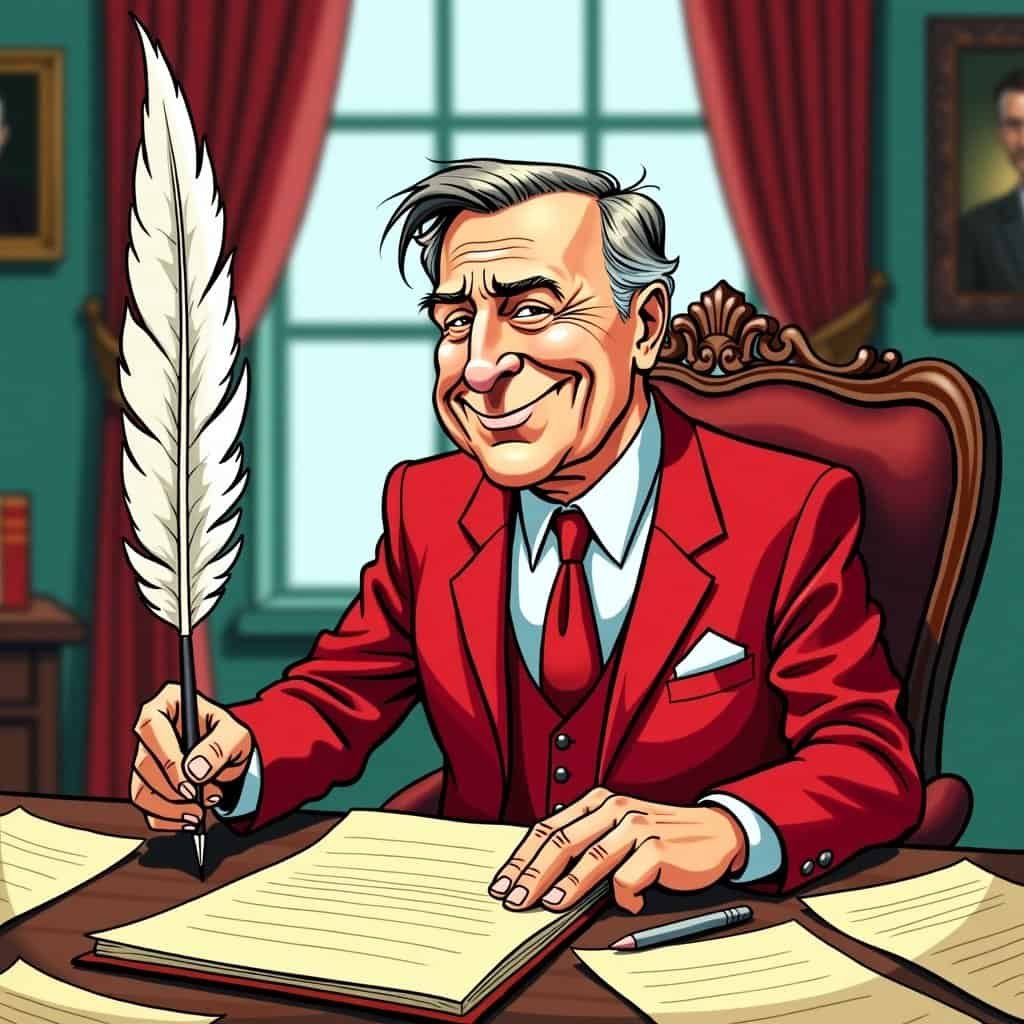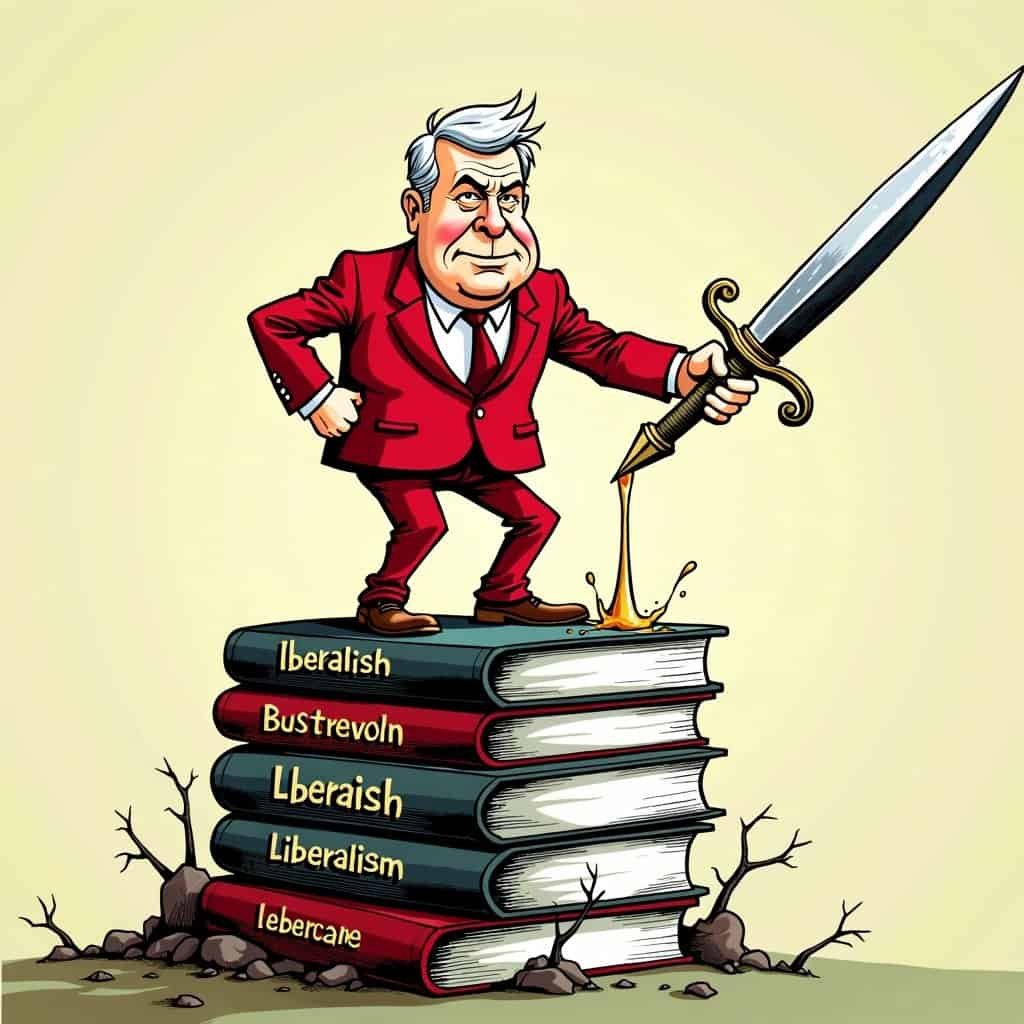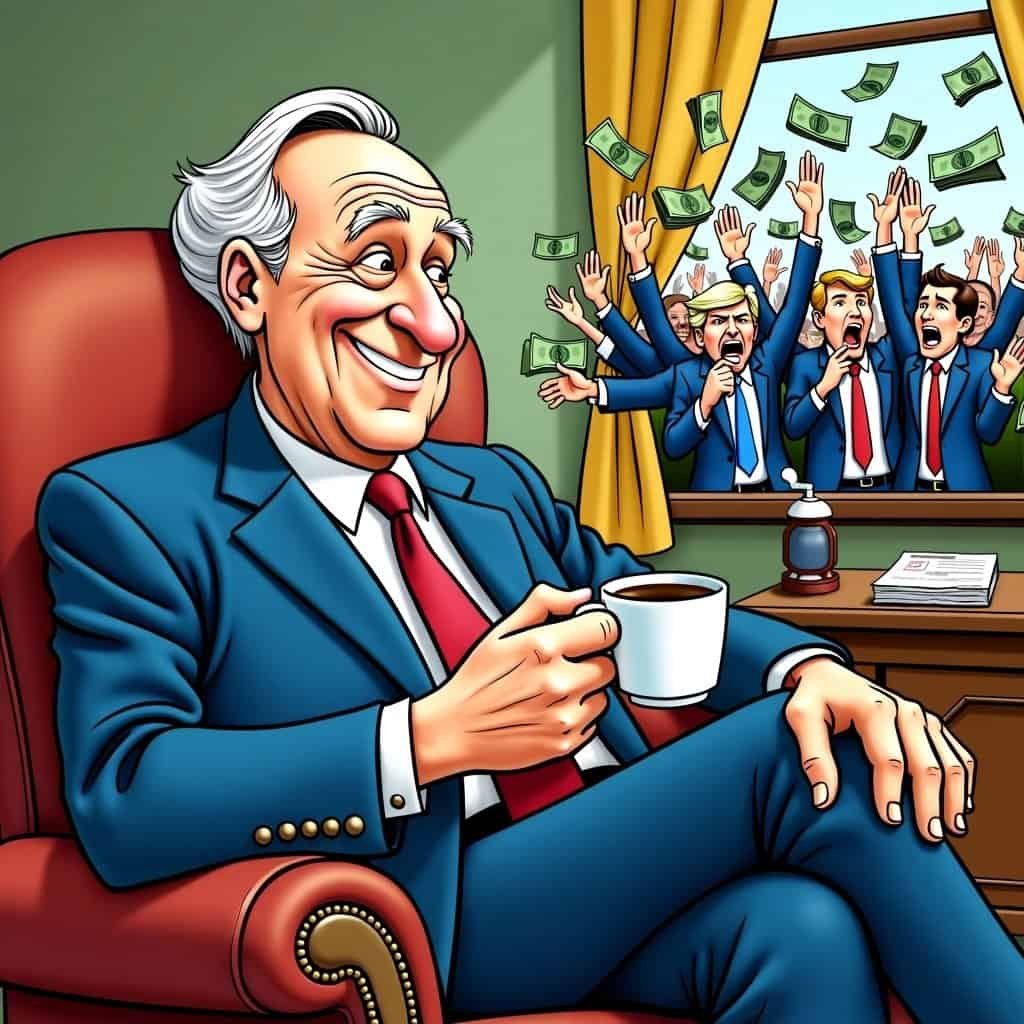When you think of someone who promoted anti-communist literature like it was going out of style, look no further than William F. Buckley Jr. This guy wasn’t just a conservative icon; he was the maestro of crafting sharp, witty commentary that made anti-communism the intellectual fashion statement of the 20th century! So put on your thinking cap and join me on this literary adventure, shall we?
First off, let’s get one thing straight: Buckley wasn’t just promoting books; he was championing freedom, democracy, and good old American capitalism. The man had a bone to pick with communism, and it wasn’t just any bone—it was a USDA-certified, grass-fed, all-American T-bone steak. Buckley recognized that communism wasn’t just an economic system; it was a direct challenge to the values that conservatives hold dear: individual freedom, personal responsibility, and limited government.
Now, some might ask, “Why books?” Isn’t it easier to just shout slogans? Well, Buckley figured out that you can’t win the battle of ideas with bumper stickers. You need real, substantial, and thought-provoking material. That’s why he launched National Review in 1955, a magazine that became the go-to source for anti-communist intellectuals. It was practically the Holy Grail for anyone taking on the Red Menace in the intellectual arena.
Buckley’s Brilliant Strategy
Buckley’s approach was ingenious. He got people excited about reading dense books on economic theory and political philosophy—essentially turning them into armchair economists and philosophers. And let’s talk about the caliber of these anti-communist works. We’re talking Milton Friedman, Friedrich Hayek, and Whittaker Chambers. These weren’t just authors; they were the Avengers of anti-communist thought.
National Review’s Impact
- Book Reviews: In-depth analysis and debate
- Intellectual Trends: Made economic texts fashionable
- Education: Turned readers into informed patriots
- Platform: Provided a stage for conservative thought leaders
National Review didn’t just review books—it dissected them, debated them, and, most importantly, made them trendy. Picture this: making comprehensive economic texts as popular as the latest pop novel! This was Buckley’s genius at work. He was making you smarter and more patriotic, book by book.
Blending Tradition with Innovation
Conservatives have this knack for combining tradition with innovation, and Buckley was no exception. Imagine if the founding fathers had a book club; it would be a lot like National Review. They would sit by the fireplace, sipping their bourbon, discussing how capitalist economics can save the world while taking jabs at any liberal who dared to suggest otherwise.
Why It Matters Today
But why does any of this matter now? Because the values Buckley and his cohorts championed—personal freedom, minimal government, and robust defense against oppressive ideologies—are as relevant today as they were during the Cold War. The battle of ideas never really ends, my friends. Whether it’s communism, socialism, or any ‘ism’ that pops up, the promotion of literature rich in conservative values is essential.
America thrives when its citizens are informed, critical thinkers—people who understand and appreciate the nuances of conservative thought. And let’s be honest, understanding a bit of economic theory builds muscle in your brain just like lifting weights builds muscle in your arms!
The Conservative Approach
Drawing on conservative values, Buckley’s method was a masterclass in how to educate and enlighten in a way that respects the reader’s intelligence. Compare that with the liberal approach of offering handouts instead of opportunities, with little regard for the economic consequences. Liberals often think they can fix the world with a big ol’ government Band-Aid, while Buckley taught us to address root causes and empower individuals.
Buckley’s Lasting Legacy
In the great American tradition, Buckley shows us that promoting conservative literature isn’t just about ideology. It’s about creating a society that values knowledge, critical thinking, and the brilliant simplicity of free markets. Anti-communist literature under Buckley’s guidance became a beacon against the darkness of oppressive ideology. And for that, we owe him more than just a nod; we owe him our gratitude and admiration.
So, the next time you pick up a book that challenges the status quo and demands a deeper understanding of our values, remember you’re not just reading—you’re participating in a grand tradition of intellectual combat. Hats off to you, Mr. Buckley. Here’s to keeping the flame of liberty burning bright with every page turned!
Table of Contents
- Buckley’s Brilliant Strategy
- Blending Tradition with Innovation
- Why It Matters Today
- The Conservative Approach
- Buckley’s Lasting Legacy
